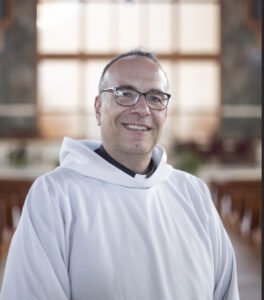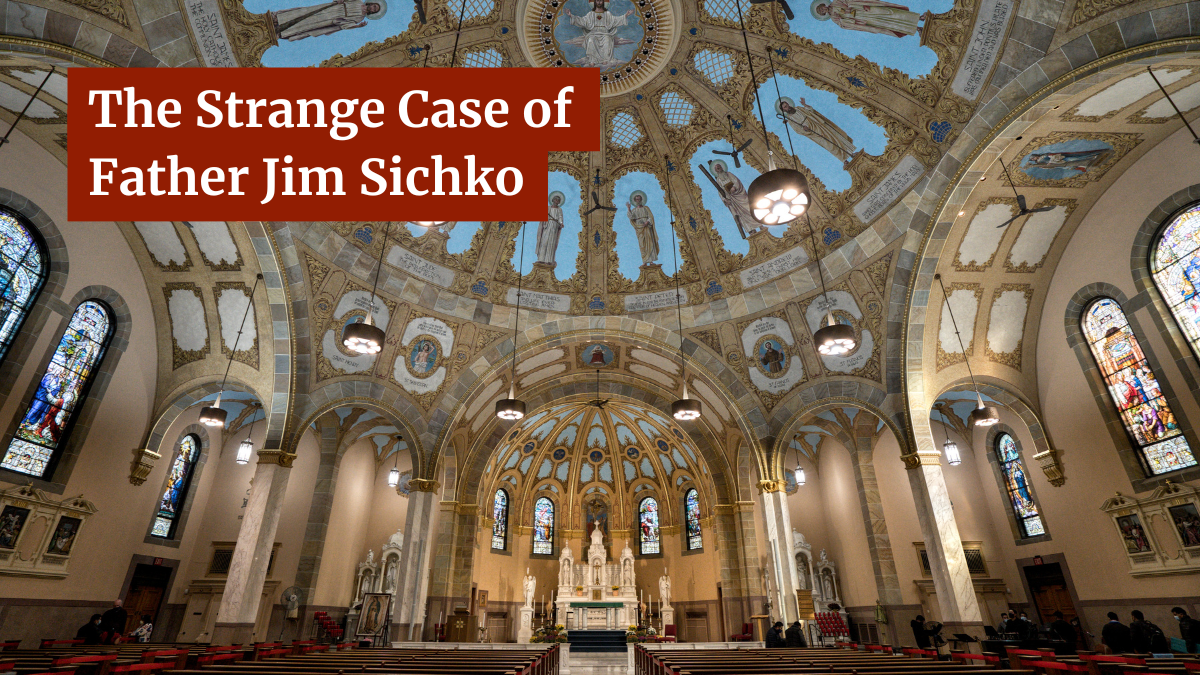The Strange Case of Father Jim Sichko

January was an incredibly busy time for plagiarism stories. It started with the resignation of then-Harvard president Claudine Gay But the allegations expanded to include Neri Oxman, the wife of Gay critic Bill Ackman, Harvard’s chief diversity officer and, most recently an administrator of the Harvard Extension School.
It is easy to see how, amidst the chaos, a plagiarism story could have fallen through the cracks. That is exactly what happened with Father Jim Sichko, whose recent book was pulled following multiple allegations of plagiarism within it.
Sichko is a priest of the Roman Catholic Diocese of Lexington, KY. However, he is also earned both national and international recognition as a motivational speaker and was commissioned by Pope Francis as a Papal Missionary, making him just one of a thousand in the world.
However, according to many of his critics, Sichko is also a serial plagiarist and has a long history of using the words and ideas of others without proper attribution.
It is an interesting case that tests the boundaries of religion, attribution, and traditional publishing. However, it is also the story of an author who failed to heed obvious warning signs and take the necessary steps to ensure that his latest work did not get called out for plagiarism.
It is a story that could have been easily avoided, but all the opportunities to do so were clearly missed.
The Story So Far…
On January 9, Sichko, through Loyola Press, published his latest book entitled 60 Seconds for Jesus: One Minute a Day Can Change Your Life. The book is a series of short anecdotes and meditations about Jesus and the Catholic faith.
However, the very next day, Loyola Press announced that it was pulling the book and returning all rights back to the author.
The reason for this was the work of Father Matthew P. Schneider, a fellow priest who has also achieved great success on social media, in particular on X (formerly Twitter), where he has amassed a following of over 70 thousand people.
In a blog post on January 10, Schneider highlighted dozens of instances of what he referred to as “straight up Plagiarism” in the book. He, along with his unnamed assistant, found all of them in less than a quarter of the work, saying that they stopped after page 50 of the 200-page work.
In a statement on his website, Sichko said that “I often share and repost comments found on the internet, many of which are reposted and reshared several times before reaching me to inspire action.”
He went on to apologize to anyone who did not receive “proper acknowledgement” and said that he does not claim to be the originator of the quotes. That said, he encourages anyone who is a creator to contact him via a special email address. According to an interview with the Lexington Herald-Leader, he has not received any such emails.
At this point, it is easy to dismiss Sichko as a well-meaning priest who did not understand the complexities and nuance of attribution in a more traditional publishing environment. However, there are two problems with that narrative.
First, this is not Sichko’s debut book. According to Amazon, he has written two other books, one published in 2014 and the other published in 2021. In both cases, co-authors are listed though their roles are not clear.
Second, for a year from January 2021 to January 2022, Sichko was targeted by an X account entitled @RevPlagiarism, which shared some 332 instances of “direct plagiarism” by Sichko on social media. According to Schneider, the account was operated by another Priest, Father Stephen Vrazel, who also says he tried to get Sichko to stop plagiarizing before launching the account.
Though the account only has 123 followers as of this writing, Sichko should have understood that his work was being examined as potential plagiarism, that at least some people were unhappy with his reuse of content and that his new book would be closely scrutinized.
Whether he was unaware of this scrutiny or ignored it, it should have been a clear sign that he needs to take attribution more seriously. However, he is not the first internationally known Priest to make that mistake.
Echoes of Father Thomas Rosica
In February 2019, we told the story of Father Thomas Rosica. Initially, he was accused of plagiarism in a lecture given to Cambridge University. However, others began to go through his large catalog of previous work and found plagiarism in various other things he had done including his columns in the Globe and Mail, as well as other works he published going back nearly 30 years.
At that time, Rosica was a major figure in Catholic media. The CEO of Salt + Light Media, the 2015 “go-to communicator” for the Pope’s Cuba and US tour and a board member of various Catholic schools, he was seen as one of the Catholic Church’s biggest communicators. However, after the plagiarism scandal, he was forced to resign all his active positions.
The comparison between Rosica and Sichko has not been lost on Sichko’s detractors. Schneider referred to Sichko as “Rosica 2.0.”
While the comparison is obvious and Sichko is prominent in his own right, it is difficult to argue that Sichko is as prolific or as prominent as Rosica was at his peak. Though Sichko certainly has a lengthy career and plagiarism does seem to be endemic through it, his significance, especially to the secular world, is not as great.
However, Sichko’s plagiarism does have a key difference from Rosica’s, namely that Rosica’s prominence was largely based on his academic credentials. A member of the Basilian Order, a former university president and a board member of several schools, Rosica presented himself as an academic to both those within the church and to secular media.
Sichko, on the other hand, makes no such claims. In his statement about the book, he says, “My intention has, and always will be, to uplift and inspire. While I do not claim to be the originator of many quotes I share, I share in faith that words inspired by love will echo on, from one heart to the next.”
This is not likely to deter Schneider who, in his post, said, “If we want to state the Church is sharing the truth, we have a stronger obligation to the truth than secular academia. Plagiarism is taking someone’s text and claiming it as your own by not citing it.” However, Sichko’s views may sway others, who view attribution as an acceptable casualty for sharing religious gospel or inspiring others to follow it.
This divide points to the complexities of mixing religion and plagiarism. As we discussed in April 2012, citation standards and attribution expectations can vary wildly from faith to faith and even organization to organization within a given faith. Each institution is going to have their own views and guidelines, even if those guidelines are not codified in any way.
This case points to such a clash in the Catholic Church, where Sichko and his supporters feel that attribution is not required for these kinds of inspirational tidbits while Schneider and his other detractors clearly feel otherwise.
It is a thorny issue, and it becomes even messier when traditional publishing and the expectations of that world are intermingled with it. There are no easy answers here and, no matter what is decided, some are going to feel slighted.
Bottom Line
Back in 2012, my advice to religious leaders was simple: Play it safe.
That advice holds true today. When it comes to citation, it is almost always better to overcite than undercite. Even if you agree with Sichko’s view on citation and attribution in this area, it is hard to deny that there were clearly warning signs others did not share his feelings and that he needed to be more careful.
If he had simply cited the work in question, would it have lessened the book in any way? Would it have taken away something that hurt its message? Probably not. What would have hurt is Sichko’s aura as he would have gone from someone who appears like a fountain of wisdom to being an aggregator of quotes and ideas found elsewhere.
To be clear, there is nothing wrong with being an aggregator. If done well, an aggregator can provide an invaluable service both to the source material and to their audience. However, Sichko did not make it clear that he was such an aggregator, denying both his audience the chance to find these new voices and those voices the recognition he could have given them.
So, whether you think that this kind of work necessitates attribution or not, it is clear that Sichko missed an opportunity to head off this issue and would have been better off if he had just heeded the warnings.
His work would not have suffered significantly but now he finds himself with his book being pulled and his future publications in doubt.
It was an avoidable mistake that others would be wise to learn from.
Want to Reuse or Republish this Content?
If you want to feature this article in your site, classroom or elsewhere, just let us know! We usually grant permission within 24 hours.
